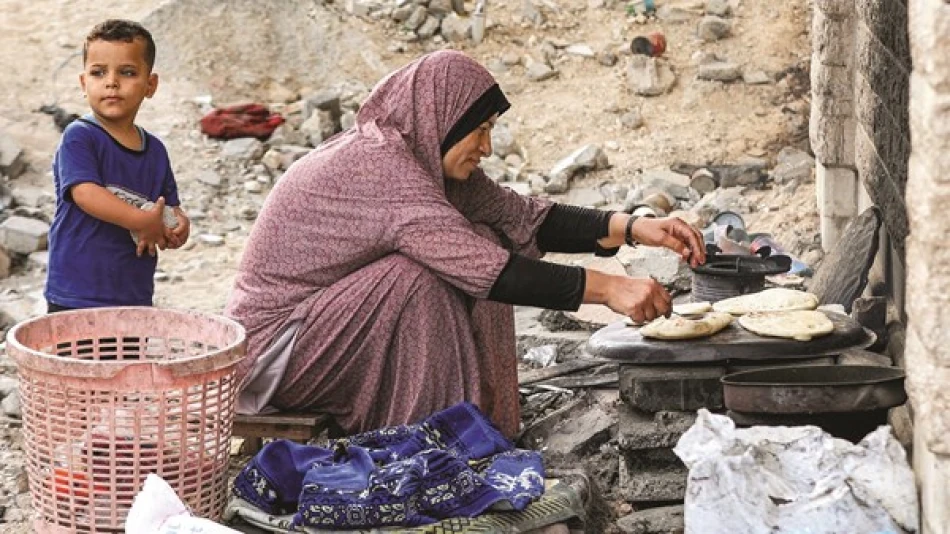
Comprehensive Efforts to Implement Trump's Gaza Plan's First Phase
Indirect negotiations between Israel and Hamas resumed yesterday in Egypt's Sharm el-Sheikh, with mediation from Egypt, Qatar, and the United States. President Donald Trump described the atmosphere as "positive" after the first day of talks wrapped up.
Qatari Foreign Ministry spokesperson Majed al-Ansari said many details of Trump's plan still need agreement. He noted that the previous day included four hours of detailed negotiations and confirmed that Doha remains committed to pushing forward the American president's plan to end the war.
All parties have agreed to Trump's Gaza plan, al-Ansari explained, but the current obstacles relate to implementation. Egyptian Foreign Minister Badr Abdelatty confirmed that the American delegation, led by Middle East Special Envoy Steve Witkoff, would join today's discussions.
The talks aim to implement the first phase of Trump's plan. Egypt's diplomatic efforts on Gaza continue without pause, Abdelatty emphasized. Trump expressed optimism about reaching an agreement to end the war based on his proposed framework.
Political experts see these negotiations as a critical regional moment where multiple interests and pressures intersect. Dr. Tayseer Abu Jumaa, a political science professor at Palestine University, noted that both sides face pressure to reach a deal - something that became clear when Hamas agreed to the American president's initiative terms.
The technical matters involving prisoner exchanges and withdrawals can be resolved through mediators if there's genuine intent from the American administration, Abu Jumaa told Al-Ittihad newspaper.
Dr. Haitham Omran, another political science professor, described the Sharm el-Sheikh talks as an extremely sensitive regional moment. Multiple regional and international parties are involved, each pursuing different goals through the mediation process.
The mediators face a complex equation, Omran explained. Israel wants its prisoners back and Hamas neutralized militarily. Hamas considers any agreement that doesn't include a complete war cessation and lifting of the blockade as compromising its core existence.
The parties aren't just seeking a limited humanitarian truce but a deeper political understanding. This could include a prisoner exchange deal that might later open doors to broader security arrangements in Gaza and possibly a new transitional phase.
Success depends on two key factors, according to Omran. First, how flexible Israel will be regarding prisoner files and long-term truces. Second, Hamas's willingness to accept arrangements that ensure ceasefire without compromising its future political and military capabilities.
From Washington, American political expert Calvin Dark said reaching an agreement appears highly complex despite current efforts. Even with significant American pressure from Trump and his administration on Israel to stop the war, Israel continues its operations.
The American initiative's success won't come through statements or social media posts, Dark noted, but through actual work and effort from all parties on the ground.
Most Viewed News

 Layla Al Mansoori
Layla Al Mansoori






